What Antonin Scalia taught us.
Antonin Scalia, 1936-2016
To achieve what Abraham Lincoln called “a more perfect union” there must be a standard of authority by which we collectively acknowledge the need for a “union” much less a desire to improve toward what is viewed as “perfect.” Commitment to a source of knowledge outside himself, Scalia consummated the marriage between truth and doubt. Reflection based on deep, careful, considerate study, Scalia believed, should forward any argument in any court of law or any conscience of an individual.
-
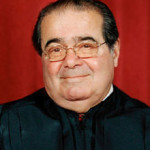 Scalia’s pro-life stance is embedded in both majority and dissenting arguments. Nine (9) children from his marriage to Maureen, however, is the proof of Scalia’s view that human life should be protected and reproduced.
Scalia’s pro-life stance is embedded in both majority and dissenting arguments. Nine (9) children from his marriage to Maureen, however, is the proof of Scalia’s view that human life should be protected and reproduced. -
Preservation of words—their history and meaning—must be sacrosanct, was Scalia’s view. The force of the 1st amendment should not be abbreviated. Words, giving rights their power, are important.
-
Protection of people—their persons and viewpoints—must be supreme, was Scalia’s view. The force of the 4th and 14th amendments should not be altered. Peoples’ rights are important.
-
Permission of states—their cultures and contexts—must be sustained, was Scalia’s view. The force of the 9th and 10th amendments should not be abridged. States’ rights are important.
-
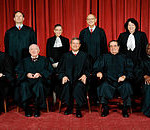 Is The Constitution a “living, breathing document” available for subjective change depending on a powerful, cultural elite or is “the text” to be understood at face value, allowing for legal structures which give foundation for a republic: a group of people ruled by law? Scalia defended the second against the first.
Is The Constitution a “living, breathing document” available for subjective change depending on a powerful, cultural elite or is “the text” to be understood at face value, allowing for legal structures which give foundation for a republic: a group of people ruled by law? Scalia defended the second against the first. -
Scalia believed in what The Constitution says is “the separation of powers.” Executive, legislative, and judicial branches are to serve as “checks and balances” against each other. Underlying such a societal structure is the belief that humans are corrupt and corruptible. Everyone needs boundaries, others to whom we are accountable.
-
In a present context where judicial decisions are seen more as edict than interpretation, Scalia preserved the belief that it was not his responsibility to create law but to interpret law. Scalia believed that people—not the courts—should rule themselves.
-
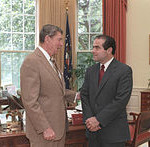 Scalia asked a fundamental question: What is the source, the origin, of law? If law is the mandate of “the people” then cultural shifts might determine right and wrong. But if law has an outside source—transcendent and universal—then right and wrong has a standard upon which all judgments could be set. Scalia was an “originalist,” the belief that the intention of The Constitution’s framers should be kept.
Scalia asked a fundamental question: What is the source, the origin, of law? If law is the mandate of “the people” then cultural shifts might determine right and wrong. But if law has an outside source—transcendent and universal—then right and wrong has a standard upon which all judgments could be set. Scalia was an “originalist,” the belief that the intention of The Constitution’s framers should be kept. -
Scalia taught conservatives that their viewpoints must remain embedded within a framework which espouses protection of both people and principle. Scalia taught liberals that their viewpoints must be buttressed upon more than cultural whim, appreciating that freedom does not come without responsibility.
-
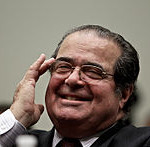 Humor was Scalia’s crowning statement about life. His zest for a good joke showed not only his humanity but his sanity. In a world fraught with dissension, Scalia found unity in laughter. Legal friend and foe alike affirmed Scalia’s openness in his humanness with cheerfulness.
Humor was Scalia’s crowning statement about life. His zest for a good joke showed not only his humanity but his sanity. In a world fraught with dissension, Scalia found unity in laughter. Legal friend and foe alike affirmed Scalia’s openness in his humanness with cheerfulness.
Mark believes that all people, no matter their political, cultural persuasion, should care for the death of all, even those with whom we may disagree. Made in God’s image, we humans bear responsibility for what has been entrusted to us. Antonin Scalia is the epitome of preserving human worth and dignity under the authority of Transcendent Truth. Dr. Mark Eckel is president of The Comenius Institute.

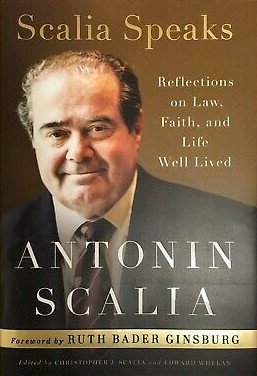
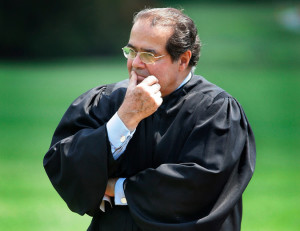
A great great man! Irreplaceable? I hope not but fear so.